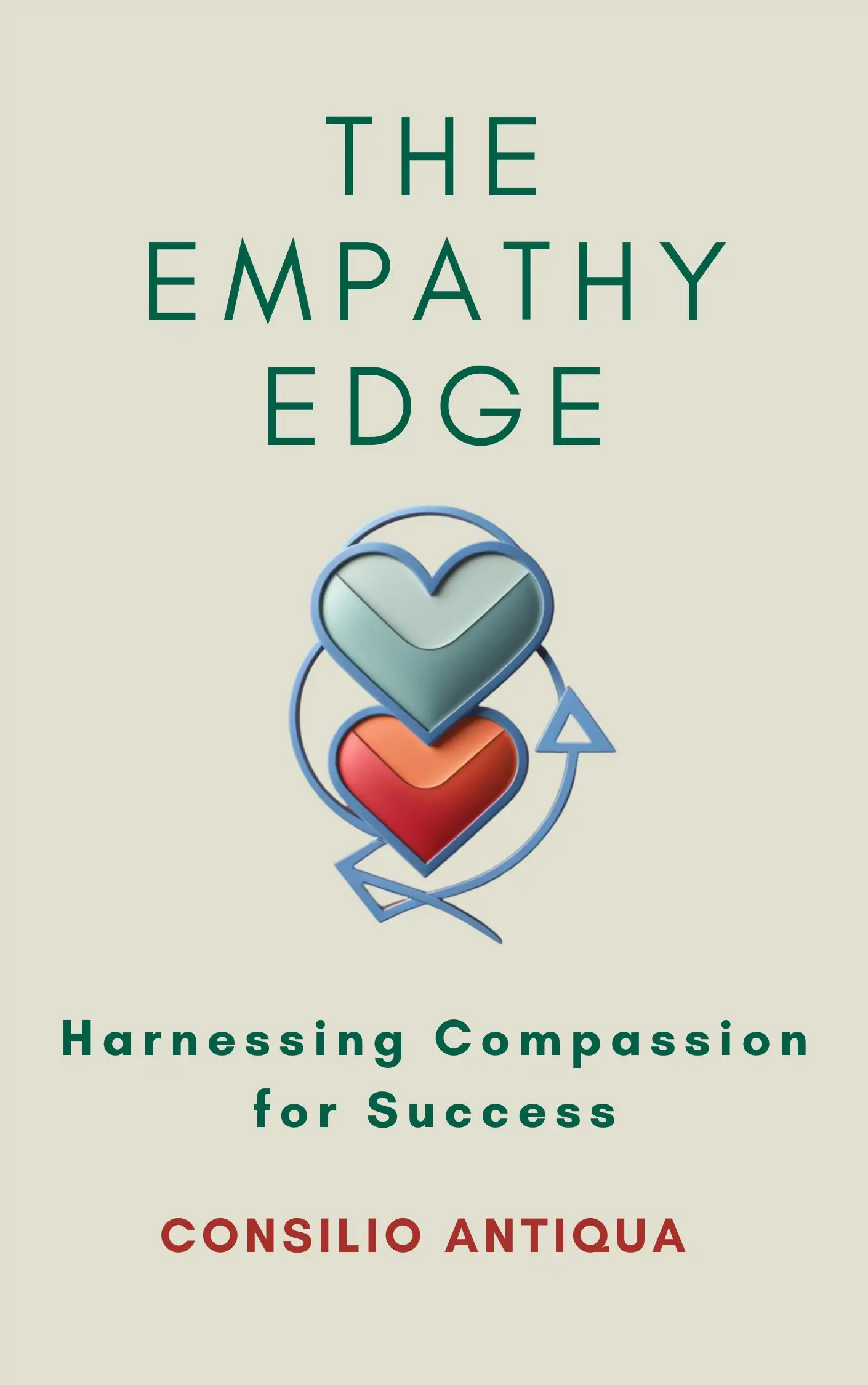
The Empathy Edge | Chapter 13: Empathy and Social Justice
Chapter 13: Empathy and Social Justice
Remember that time you saw a homeless man shivering on a park bench, and you felt a tug in your chest? Or maybe you watched a documentary about refugees fleeing war, and tears welled up in your eyes? That, my friend, is the quiet whisper of empathy, a powerful force that connects us to the human experience, even when it's miles away from our own front door.
Empathy isn't just about feeling sorry for someone. It's about stepping into their shoes, feeling the world through their unique lens, and understanding their joys and sorrows as if they were your own. It's about recognizing that even though we may have different backgrounds, beliefs, or experiences, we're all connected by the shared thread of humanity.
When Empathy Fuels Change
Think about Maya, a young woman who grew up in a small town where everyone looked just like her. One day, she stumbled upon a blog post written by a refugee from a country she'd only seen on the news. The refugee's story was raw and honest, filled with fear, loss, and a desperate hope for a better future. Maya found herself captivated, her heart aching for this stranger's pain. That empathy sparked a fire in her. She started volunteering at a local refugee resettlement agency, welcoming families, and helping them navigate their new lives. Maya's small act of kindness, fueled by empathy, rippled outwards, creating a more welcoming and compassionate community.
Empathy has always been the secret ingredient in the recipe for social change. It's the force that pushed people to fight for the end of slavery, demand equal rights for women, and challenge discrimination in all its forms. These movements weren't born out of logic or duty alone; they were ignited by the flames of empathy, the ability to see the suffering of others and say, "Enough is enough."
Bridging the Gap, One Conversation at a Time
Let's be honest, we often live in our own little bubbles, surrounded by people who think and believe just like us. It's comfortable, sure, but it can also limit our understanding of the wider world. Empathy is the bridge that helps us cross those divides. It requires us to step outside our comfort zones, listen with open hearts, and acknowledge that our perspective is just one piece of a much larger, more colorful puzzle.
So, how do we build these bridges of empathy? It starts with small, intentional steps. Maybe you strike up a conversation with someone who looks different from you at the grocery store. Or perhaps you join an online forum where people share perspectives that challenge your own. You could even volunteer at a local organization that serves a diverse population. These seemingly small actions can open your eyes to new worlds and help you understand the experiences of others in a deeper, more meaningful way.
Empathy in Action: A Story of Hope
Imagine a young boy named David, growing up in a neighborhood where violence and poverty were the norm. He felt trapped, like his future was already written for him. But then, a community center opened its doors, offering after-school programs, mentorship, and a safe space for kids to just be kids. The volunteers at the center saw David, not as a statistic, but as a young boy with dreams and potential. They listened to his stories, encouraged his passions, and helped him believe in a brighter future. That empathy, that unwavering belief in his worth, changed the trajectory of David's life. He went on to college, became a teacher, and dedicated his life to helping other kids escape the cycle of poverty.
David's story is just one example of the ripple effect of empathy. When we choose to see the humanity in others, when we choose to act with compassion, we create a world where everyone has the opportunity to flourish.
Your Turn: Planting Seeds of Empathy
Now, it's your turn to explore the power of empathy. Grab a journal, find a quiet spot, and reflect on these questions:
- What are some social issues that stir your heart?
- Can you imagine what it might be like to walk in the shoes of someone affected by these issues?
- How can you use your unique talents and passions to make a difference?
Don't just stop at reflection. Take action! Here are a few ideas to get you started:
- Read stories from diverse voices: Explore books, articles, and blogs written by people from different backgrounds and experiences.
- Listen to podcasts or watch documentaries: Immerse yourself in stories that challenge your perspectives and broaden your understanding of the world.
- Engage in respectful conversations: Talk to people who hold different viewpoints than your own. Listen with an open mind and try to understand their perspective, even if you don't agree with it.
- Support organizations working for social justice: Volunteer your time, donate to a cause you believe in, or use your voice to advocate for change.
Empathy is more than just a feeling; it's a superpower. It's the key to unlocking a more just, compassionate, and connected world. So, open your heart, embrace empathy, and let's create a world where everyone feels seen, heard, and valued.
